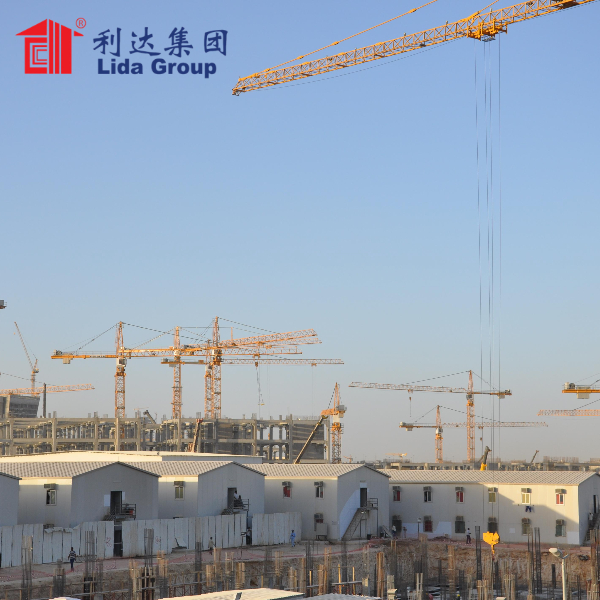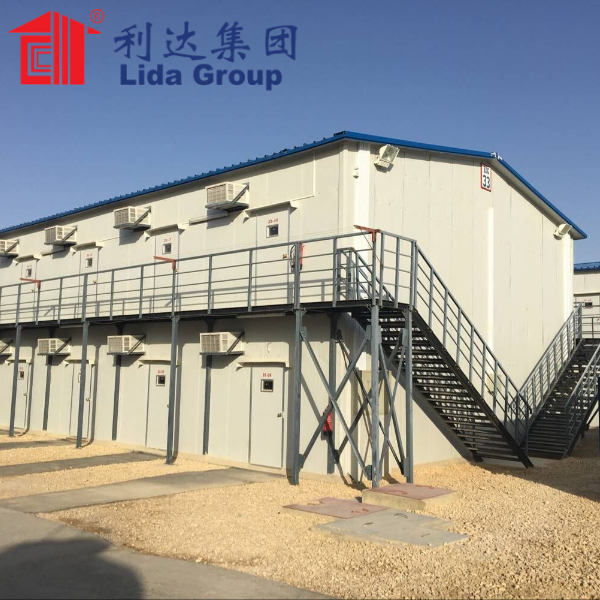Introduction
In an era of increasing environmental awareness, sustainable living has become a priority for many individuals and communities. Lida Group, a leading construction company, offers a solution that aligns with this vision—their prefab houses that promote eco-friendly practices without compromising on quality or comfort. In this article, we will explore the concept of sustainable living and how Lida Group’s prefab houses enable individuals to embrace a more sustainable lifestyle.
- Understanding Sustainable Living
Sustainable living involves making conscious choices that minimize negative impacts on the environment and promote the well-being of both present and future generations. It encompasses various aspects of daily life, including energy consumption, resource usage, waste management, and overall lifestyle choices. By adopting sustainable practices, individuals can reduce their carbon footprint and contribute to a healthier planet.
- The Role of Prefab Houses in Sustainable Living
Prefab houses play a significant role in sustainable living due to their inherent characteristics and construction methods. Let’s explore some key aspects of Lida Group’s prefab houses that contribute to a sustainable lifestyle:
2.1 Energy Efficiency
Lida Group’s prefab houses are designed with energy efficiency in mind. These structures incorporate insulation materials, energy-efficient windows, and efficient heating, ventilation, and air conditioning (HVAC) systems. By minimizing heat loss or gain and optimizing energy consumption, prefab houses reduce the overall energy demand, leading to lower utility bills and a reduced environmental impact.
The use of sustainable materials is a fundamental principle in the construction of prefab houses. Lida Group prioritizes eco-friendly materials that are responsibly sourced and have a minimal environmental impact. These materials include recycled content, renewable resources, and low VOC (volatile organic compound) products. By choosing sustainable materials, the carbon footprint associated with the construction process is significantly reduced.
2.3 Waste Reduction
Prefab houses are constructed in a controlled factory environment, minimizing construction waste compared to traditional on-site construction. The precise manufacturing process ensures that materials are used efficiently, with minimal scrap or excess. Additionally, any waste generated during the manufacturing process is properly managed and recycled, further reducing the environmental impact.
2.4 Sustainable Design and Customization
Lida Group’s prefab houses are designed to accommodate sustainable features and customization options. The modular design allows for the integration of renewable energy systems such as solar panels or wind turbines. Additionally, the customizable nature of prefab houses allows individuals to tailor their living space according to their specific sustainability goals, such as rainwater harvesting systems or green roofs.
- Benefits of Sustainable Prefab Houses
3.1 Reduced Environmental Impact
By embracing Lida Group’s prefab houses, individuals contribute to a significant reduction in their environmental impact. The energy-efficient design, use of sustainable materials, and waste reduction practices all work together to minimize carbon emissions, resource depletion, and pollution.
3.2 Cost Savings
Sustainable living often goes hand in hand with cost savings. Prefab houses constructed with energy-efficient features result in reduced energy consumption and lower utility bills. Additionally, the controlled manufacturing process and reduced construction time of prefab houses lead to cost savings compared to traditional construction methods.
3.3 Health and Well-being
Sustainable prefab houses prioritize the health and well-being of occupants. The use of low VOC materials ensures better indoor air quality, reducing the risk of respiratory issues and allergies. Natural lighting and ventilation strategies are also integrated into the design, creating a healthier and more comfortable living environment.
3.4 Adaptability and Resilience
Prefab houses offer adaptability and resilience, allowing individuals to respond to changing needs and environmental conditions. The modular design allows for easy expansion or relocation, reducing the need for new construction and minimizing waste. Additionally, the use of durable and weather-resistant materials ensures the longevity and resilience of prefab houses, reducing the need for frequent repairs or replacements.
- Inspiring Sustainable Communities
Lida Group’s prefab houses not only enable individuals to embrace sustainable living but also have the potential to inspire sustainable communities. By adopting eco-friendly practices and promoting sustainable design, individuals residing in prefab houses can serve as role models, encouraging others to make sustainable choices and contributing to the overall well-being of their communities.
Conclusion
Lida Group’s prefab houses provide individuals with an opportunity to embrace sustainable living without compromising on quality or comfort. These eco-friendly structures incorporate energy-efficient features, sustainable materials, waste reduction practices, and customizable options that align with sustainable living principles. By choosing prefab houses, individuals can reduce their environmental impact, save costs, improve their health and well-being, and inspire sustainable communities.
As the world continues to prioritize sustainability, Lida Group’s prefab houses offer a practical and innovative solution for those seeking a more sustainable lifestyle. By embracing these eco-friendly structures, individuals take a significant step towards reducing their carbon footprint, protecting the environment, and creating a better future for generations to come.
Post time: Apr-07-2024

